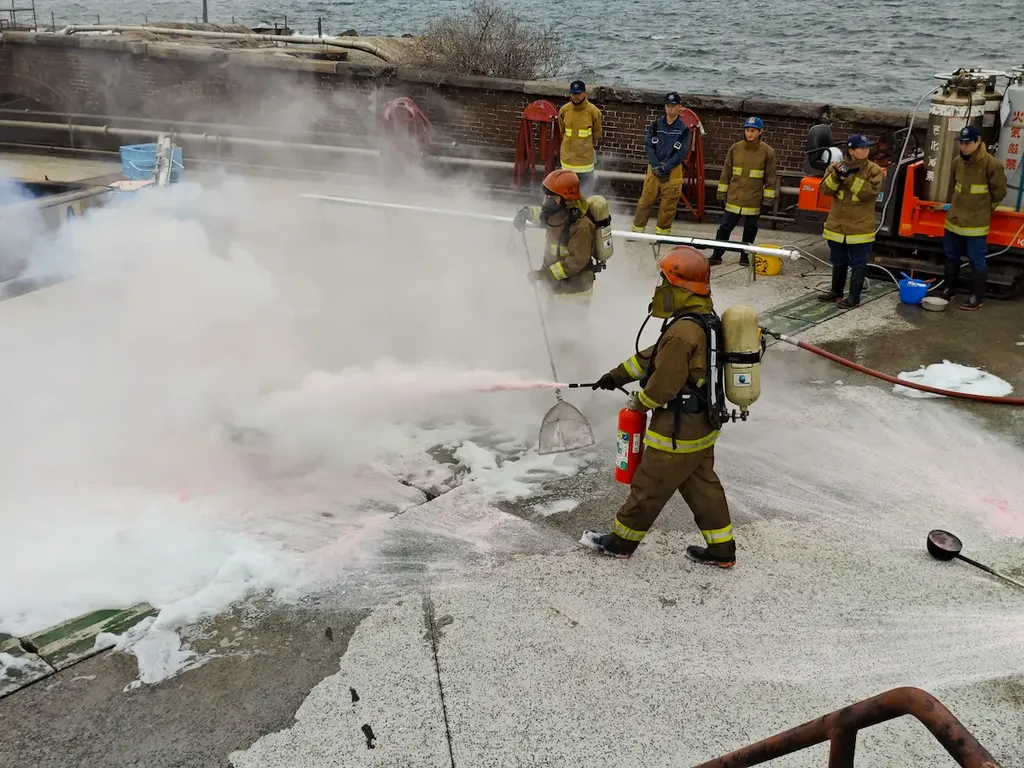The International Maritime Organization’s (IMO) new interim guidelines on training for seafarers on ships using alternative fuels and new technologies mark a pivotal moment for the industry. Nautilus International, the trade union for maritime professionals, has welcomed the guidelines as a crucial step toward safety and decarbonisation. However, the union is quick to point out that this is just the beginning of a long journey toward a just transition for seafarers.
The guidelines, outlined in STCW 7/ Circ. 25, provide an international framework for developing and approving training programs for seafarers serving on ships powered by alternative fuels and new technologies. These include vessels using methyl/ethyl alcohol, ammonia, hydrogen, liquefied petroleum gas (LPG), batteries, and fuel cells. The IMO’s move comes as the Maritime Just Transition Task Force launches training frameworks designed to facilitate the development of training programs for seafarers working on ships powered by ammonia, methanol, and hydrogen.
Danny McGowan, Nautilus head of international relations, acknowledges the significance of the guidelines but emphasizes that much remains to be done. “This is an important step towards a safer transition to alternative fuels and new energy sources as we move towards IMO net-zero goals,” he says. However, he urges shipowners, employers, and stakeholders to reflect on the views of seafarers worldwide regarding decarbonisation and technological change.
McGowan highlights that while Nautilus members are broadly supportive of the transition to alternative fuels, there are justified fears and concerns. Seafarers are worried about the possibility of worsening pay, crew reductions, deteriorating terms and conditions, and even criminalisation in the event of an incident involving new technology.
This raises a critical question: How can the industry ensure that the transition to alternative fuels and new technologies is not just safe but also just? The IMO guidelines are a start, but they are not enough on their own. Shipowners, governments, and industry stakeholders must take proactive steps to address the concerns of seafarers.
One of the key challenges is ensuring that the benefits of the transition are shared equitably. This means investing in training and development programs that prepare seafarers for the new technologies and ensuring that they are fairly compensated for their skills and expertise. It also means creating frameworks that protect seafarers from the risks associated with new technologies, including potential legal liabilities.
Another challenge is ensuring that the transition does not lead to job losses or deteriorating working conditions. The industry must explore ways to create new opportunities for seafarers and ensure that they are not left behind as the industry evolves.
Nautilus is calling on all stakeholders to play their part in ensuring a just transition. The union stands ready to give voice to maritime professionals and to work with the industry to address the challenges ahead. As McGowan puts it, “We stand ready to play our part in that transition and to give voice to maritime professionals.”
The IMO guidelines are a significant step forward, but they are just the beginning. The industry must now work together to ensure that the transition to alternative fuels and new technologies is not just safe but also just. This will require a concerted effort from all stakeholders, including shipowners, governments, and industry organisations. It will also require a willingness to listen to the concerns of seafarers and to take proactive steps to address them.
The stakes are high, but the opportunities are even greater. By working together, the industry can ensure that the transition to a low-carbon future is not just safe but also just, creating new opportunities for seafarers and ensuring that they are not left behind. The IMO guidelines are a crucial first step, but the journey is far from over. The industry must now rise to the challenge and ensure that the transition is a just one for all.

